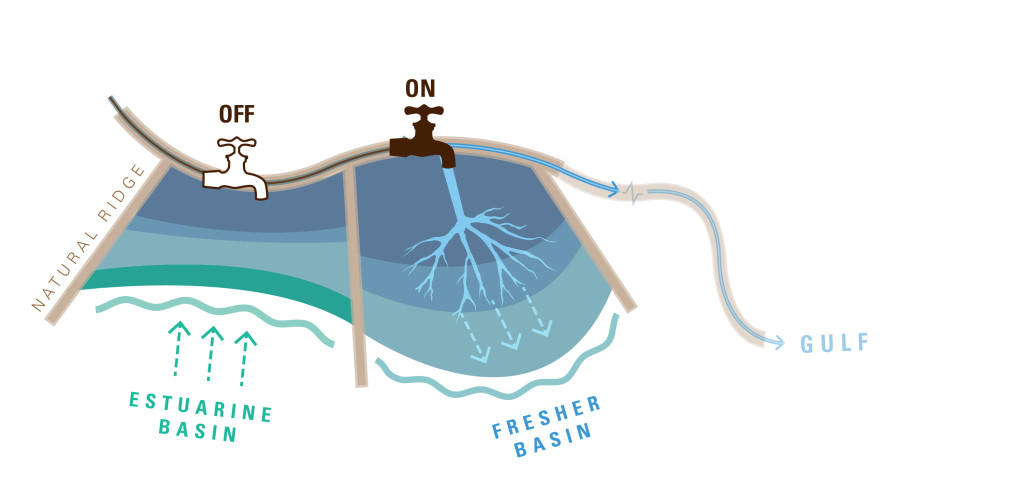Although the estuarine environments of the Delta continue to flourish today, most Delta ecologists agree that a tipping point is coming where wetland loss will lead to a rapid decline in fish abundance. We don’t know exactly when this tipping point will occur, but this shouldn’t be a reason to postpone Delta wetland restoration.
Another important existing challenge to Delta fisheries is the Dead Zone in the Gulf of Mexico. Today, nutrient-loaded water from the river is directly discharged to the Gulf without passing through absorptive wetlands. This leads to large areas of hypoxia (low-oxygen) that negatively impact fish populations.
Today, many fishermen are still recovering from a difficult decade which strained finances and created much uncertainty. The future holds many unknowns as well. Rising sea levels could impact existing fisheries by changing the salinity levels in the Delta. Areas suitable for oysters and fish could change from where they are today.
Building with the river maximizes land growth, but it introduces freshwater into areas that are currently estuarine, significant for commercial fisheries and oysters. Our plan acknowledges that this is a very difficult tradeoff. We must find a way to balance the needs of all residents of the Delta to find a way forward. We can’t afford to sustain the Delta solely through dredging, so our plan begins to identify ways to build with the river while also providing the greatest possible support for the fishing community. We seek to find an equitable balance between freshwater and estuarine areas through turning new river mouths off and on with time. This approach replicates the natural delta cycle of growth and abandonment, supporting ecological restoration to the fullest extent.
The fishing and oyster farming communities are stakeholders we want to work closely with to craft an approach that minimizes undue disruption to this vital industry.
BENEFITS TO THE FISHING INDUSTRY
- Stability for future fisheries (vs. living through the approaching tipping point and subsequent dramatic decline)
- A smaller Delta will be more accessible to recreational and commercial fishers
- Delta Discovery Center and the 2 Home Program provide more options for adapting as the Delta transitions to a balance of freshwater and estuarine areas
- Reduction of the Gulf Dead Zone
How will this work? Read more about our approach.
